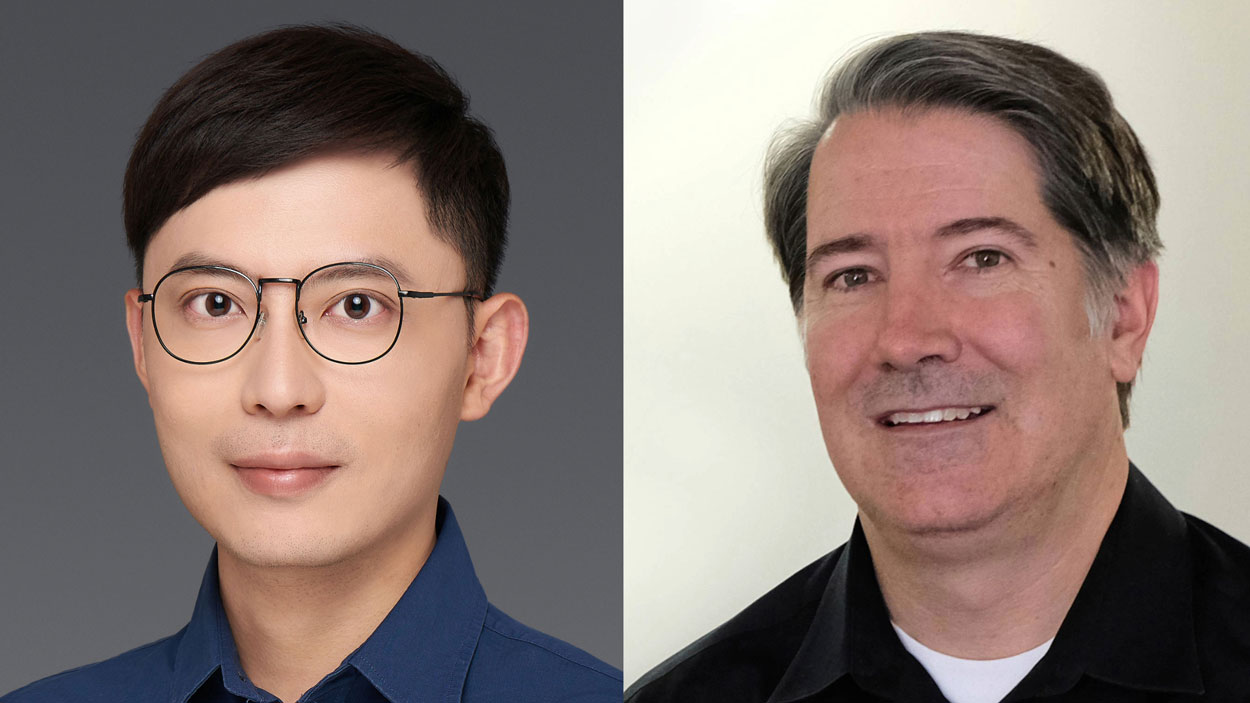
UMSL political scientists Yuguo Liao and David Kimball are partnering on research into the pressures faced by local officials and their decisions to remain in their roles. The project is supported by a grant from the Bipartisan Policy Center.
David Kimball remembers the days when local election officials conducted their jobs in relative anonymity.
“They counted the votes; people accepted the election results,” said Kimball, a professor and the chair of the Department of Political Science at the University of Missouri–St. Louis. “It was a relatively mundane job.”
Kimball believes that started to change in the aftermath of election day in 2000, when a fight ensued over the presidential vote count between George W. Bush and Al Gore and carried on for more than a month, ultimately getting settled by the United States Supreme Court.
The scrutiny placed on the administration of elections has increased over the more than two decades since, perhaps reaching its crest in the wake of the 2020 election. County clerks, members of county boards of elections and even some poll workers have found themselves the targets of ire from political candidates, their campaigns and their citizen supporters when the results don’t go their way.
“Since 2020, there is increasing concern about public safety and harassment of local election officials,” Kimball said. “I just looked at a recent study. It found that 40% of local election officials have experienced threats, harassment or abuse, and a majority have concerns about their safety.”
Kimball and his colleague Yuguo Liao, an associate professor in UMSL’s Department of Political Science, are researching the impact this environment – along with the challenges that sometimes follow from a scarcity of resources – is having on the psyche of local election officials and their decisions to remain in their jobs.
In May, they received one of nine grants from the Bipartisan Policy Center supporting academic research on election administration recruitment, retention and training. Their project is titled “Guardians under Pressure: Examining the Dynamics of Challenges, Empowerment, and Turnover Intentions Among Local Election Officials” and will also explore the role that a motivation toward public service has in mitigating the pressures that might lead local election officials to flee the profession.
“We assume that people who were local election officials with higher public service motivation, with higher willingness to serve the public, they could handle the environmental challenges better and they would have stronger willingness to stay within the profession,” Liao said. “That’s our hypothesis.”
This is the first time he and Kimball have worked together on a research project, and it perfectly marries their interests. Liao, who is serving as the principal investigator on the grant, studies public personnel management, teaching courses related to human resources management in the government sector. He has spent time exploring why public officials choose to work in government, passing on or leaving behind other, often more lucrative, opportunities to do so. Kimball, meanwhile, has focused much of his research on the administration of elections.
Kimball said there are growing concerns over what might happen should the pressures of the job lead large numbers of local election officials to abandon their positions or seek other careers in the first place.
“Administering elections really takes a certain set of skills,” Kimball said. “It’s very detailed and logistics oriented. You have to be able to manage people well, and you have to have a good customer service approach. Election laws often change, so you have to adjust to new laws and new policies, either from the state or the federal government. So, the people who do this, at least until recently, tend to stay in these positions quite a while.”
Their expertise is not quickly or easily replaced.
But in some ways, it is a rise in populism and its accompanying distrust of expertise across the political spectrum that has contributed to the mounting pressure local election officials experience.
“A key aspect of the context of this study is we want to look at how this profession has responded to the rise of populism,” Liao said.
In the past month, they have begun surveying some of the thousands of county clerks across the country to gain an understanding of their experiences and motivations. They hope to collect data from about 800 of those local election officials to get a clearer picture of what people face in the profession.
Liao joined some of the other grant recipients at a workshop put on by the Bipartisan Policy Center in May.
“I feel like the whole purpose of this grant,” he said, “is they want to bring both people in academia and also practitioners to work together to figure out some solutions or some suggestions to help recruit and retain local election officials.”














